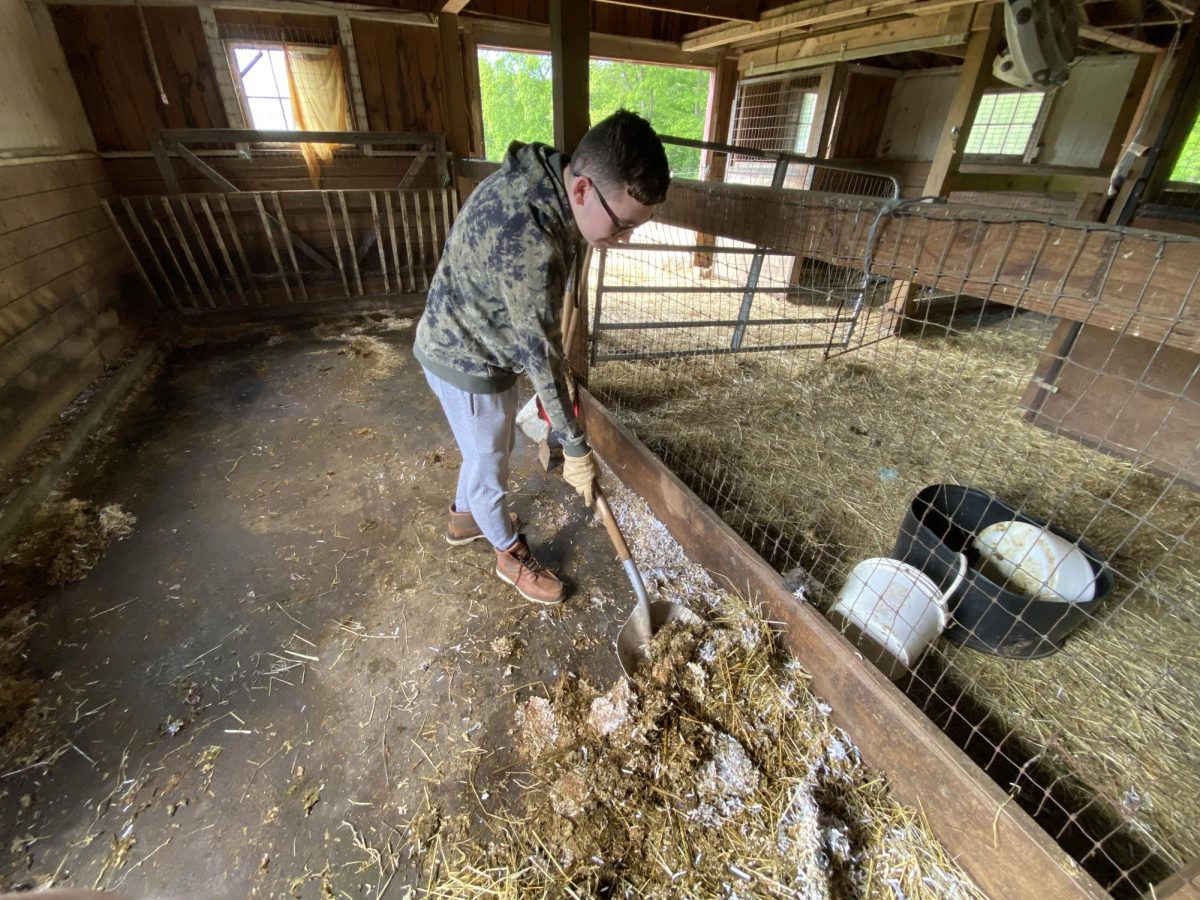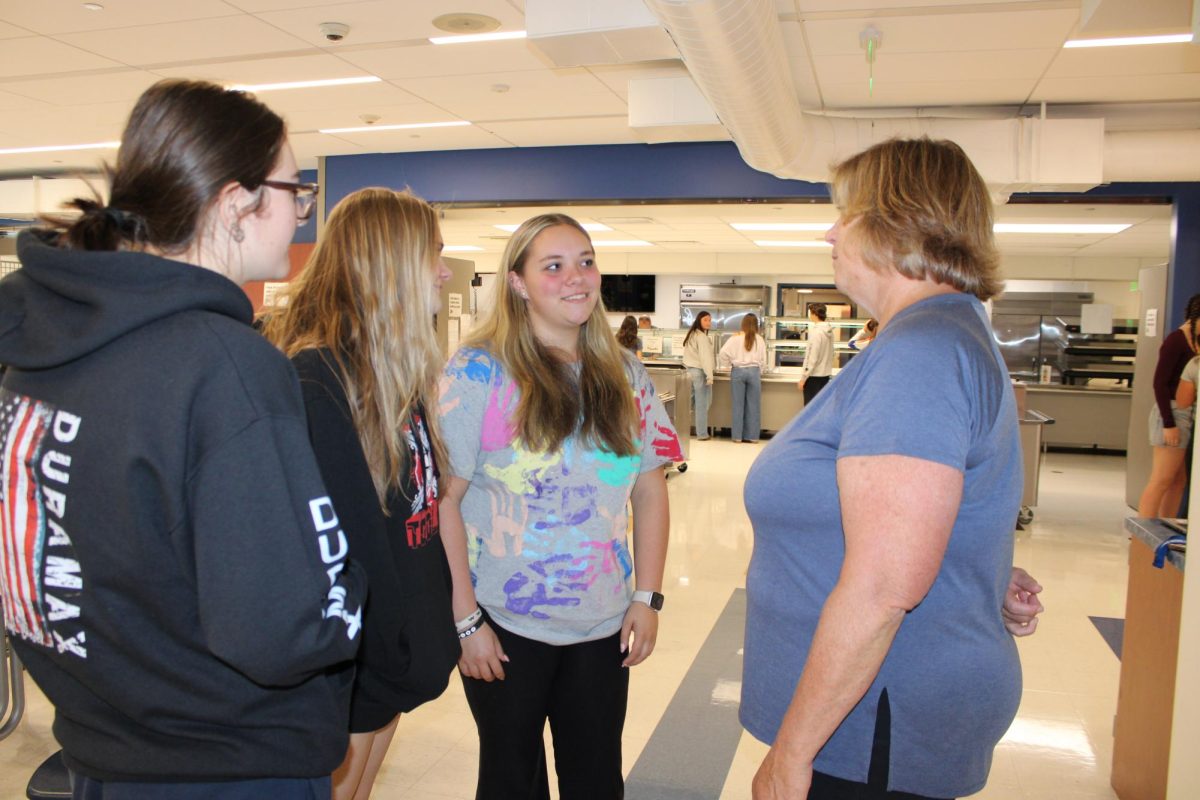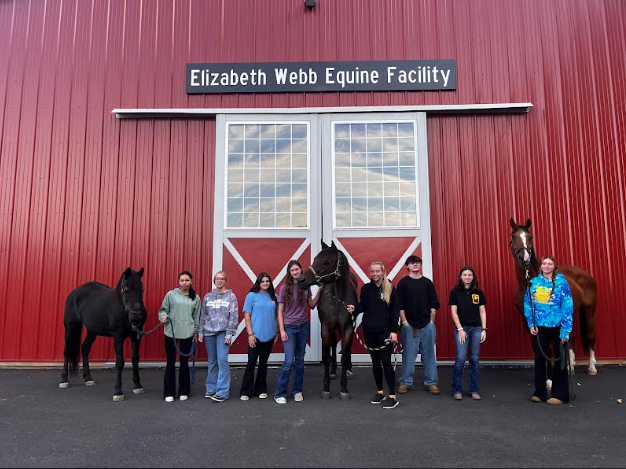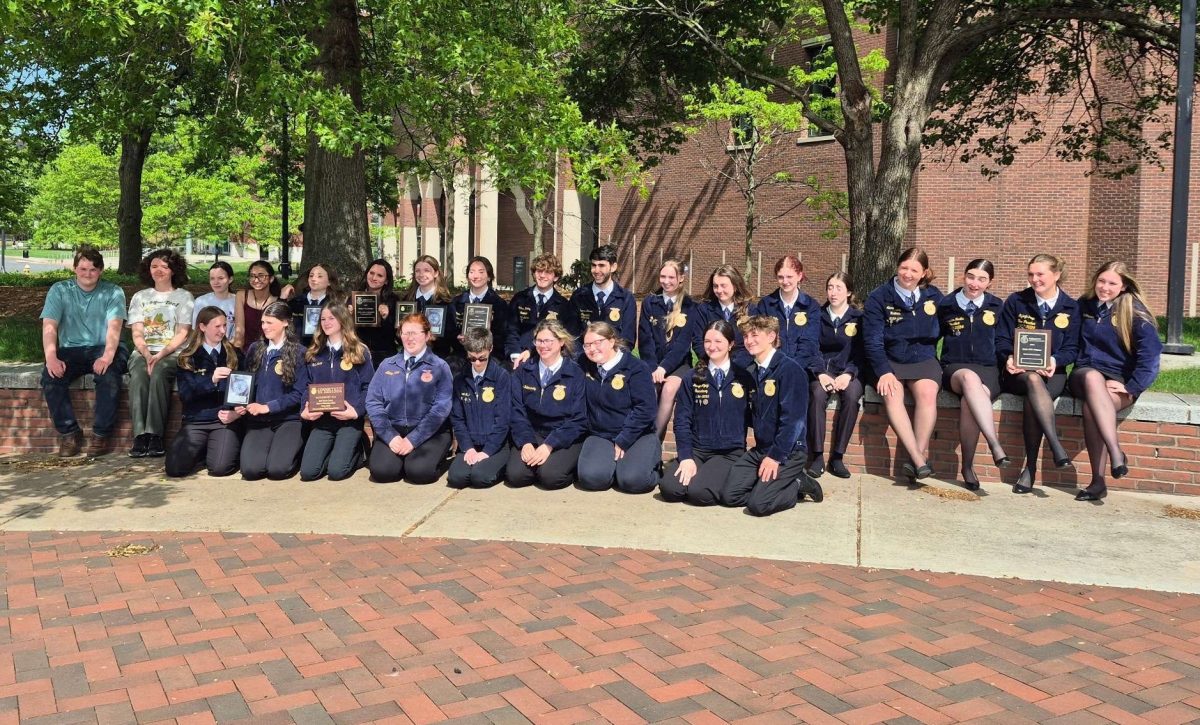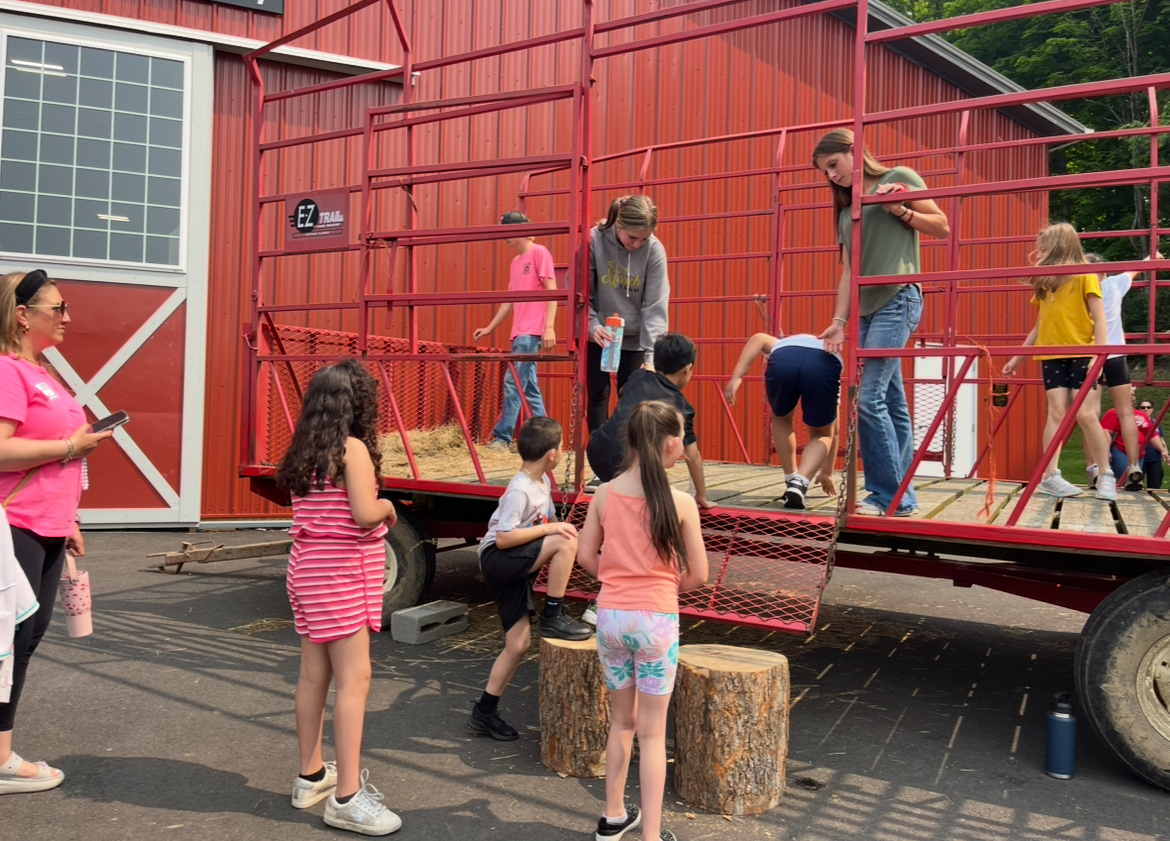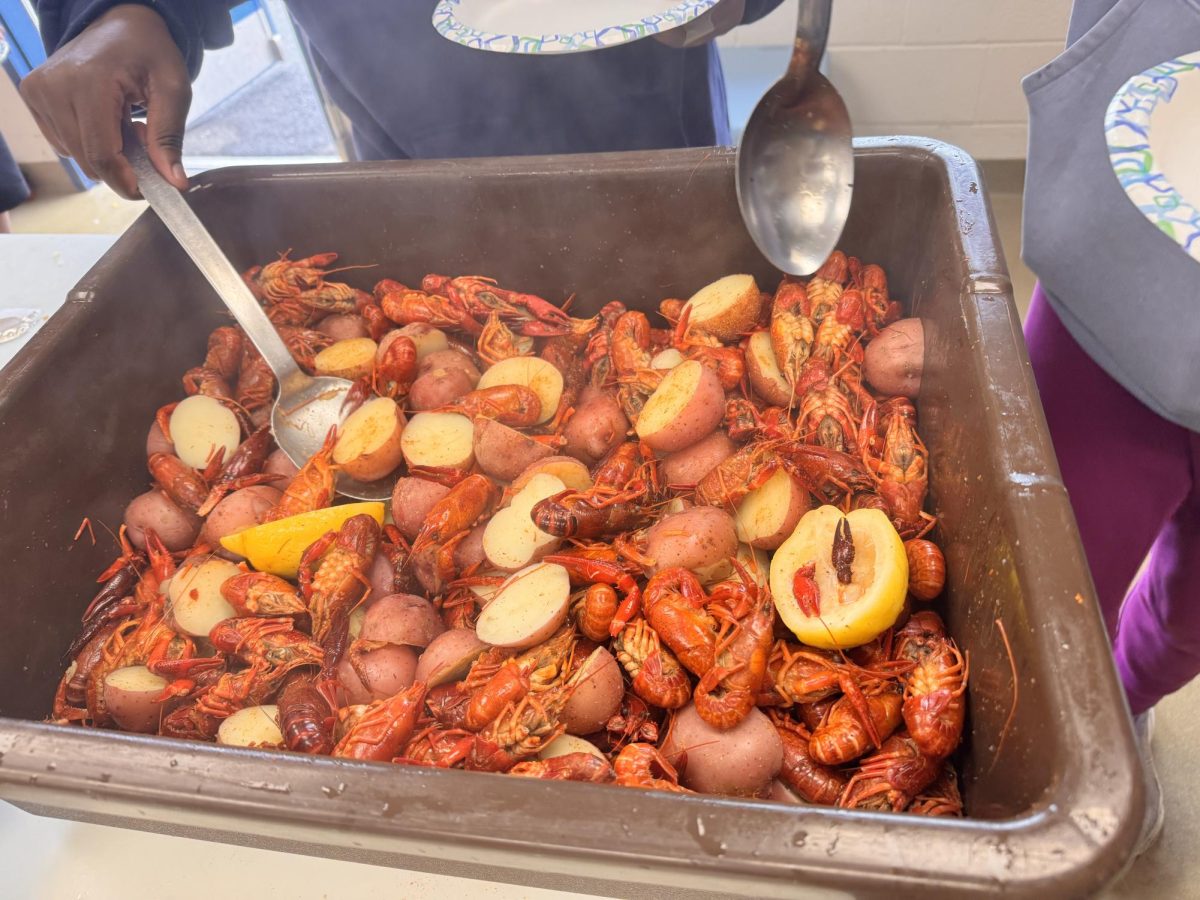WOODBURY — One of the many requirements that come with being in the ag program at Nonnewaug High School is having an SAE (supervised agricultural experience). SAEs may look a little different for each ag school, but overall they still have a big importance for many ag programs and students.
“I work at the North Barn at Flanders Nature Center, and I have been there for a little over a year,” says Finnegan Magee, a junior. “I think SAE overall helps us get skills we’ll need in the future. Working in the summer is how I get the majority of my hours so the plan is just to get them before school starts [next fall].”
Similar to Magee, Andrew Singletary also is a Flanders employee and has similar views on why SAE is important.
“My SAE is a summer camp counselor at Flanders Nature Center, and I’ve been doing it for three years now,” says Singletary. “I do think SAE is helpful in the sense that it gives students a chance to learn about how to get a job and the working experience.”
Current sophomores also speak on why SAE is important.
“It helps with building of skills and getting into the workforce right away because people have a hard time with that fresh out of high school,” says Toby Stalh. “Also, in high school, your schedule is basically made for you; you are told where to be and when and it is very catered to you but once you get to college you need to make your own schedule and balance school, work, and starting out your life. You also need to provide for yourself but ag gives you an early insight of skills on working and all that comes with it.”
Garnet Mayfield also shares similar thoughts.
“It helps you gain skills in the workplace, and gives you a preview to see what you want to do in your future, because you may not know what type of work you want to do,” Mayfield says, “and with SAE and doing it high school, you have four years to test things out and see what you like instead of scrambling while you now need to provide for yourself, and while either doing collage or trying to figure out where you want to start the next chapter of your life”
Jennifer Jedd, the SAE coordinator and ag teacher, does much of the behind-the-scenes stuff for SAE, such as paperwork, emails, and phone calls, making sure kids are on top of their SAEs and making sure they are following the rules.
“SAE is important to help students learn skills that will make them successful in any workplace, such as communication, responsibility, being thorough, learning to work as a team, time management, etc.,” says Jedd. “They will ideally also be able to either continue to develop skills learned in class and apply them to the career setting. [For] example: A student in the veterinary science class will work in a veterinary office, or be able to explore a potential career opportunity or interest area and help determine a career or interest path.”
Every few years, there are changes that are made to the SAE side of the program. Whether it’s good or bad, sometimes a change is necessary.
“We updated the entrepreneur requirements and remade the business plan template to make it more streamlined for students and more relevant to career needs,” says Jedd. “We also have all teachers involved in the SAE approval and review process, which is new this year. We are also being more strict about checking pay stubs to verify that taxes are being taken out and that employers have appropriate worker’s comp policies.”
That wasn’t the only change. They also downgraded the amount of hours the freshmen and sophomores had to get; it used to be that all grades had to get 200 hours, but now the sophomores have to only get 100 hours and then when they’re juniors, their hours increase to 200.
“It is an increase of 100 hours from sophomore year. Students will be more experienced, be older, and therefore more eligible for a wider variety of opportunities,” says Jedd. “Two hundred hours breaks down to four hours per week, which is not a lot. Two hundred hours was chosen for a couple of reasons: It helps to set students up for success for awards and recognition, such as community service awards, scholarships, awards in FFA, such as proficiency, state degree, and American degree, and helps to build your resume by showing commitment to something.”
Students have many areas in the agricultural field where they could work their SAE. Some may work or volunteer on farms, in veterinary offices, or stores, and others may choose to take the entrepreneur route and start their own business, whether that be landscaping, selling chicken eggs, or their own pet-sitting business.
“There is a variety, but it has definitely slimmed down recently due to the decrease of towns that we take from, and from state labor laws,” says Jedd. “We have had an increase in the number of students volunteering (which often leads to either a paid job or a scholarship down the road), and an increase in student entrepreneurship. We have put a lot of requirements in place for entrepreneurs to make sure that the rigor is maintained.”
No matter the SAE, students are guaranteed to learn something.
“A lot of what I learned was how to take care of animals that I wouldn’t have normally learned on my own,” says Mayfield. “I also learned how to walk trails, take care of environments, and talk to big groups of kids and people.”
“I worked alone for a long time so I learned independence,” Stahl agreed. “I also learned things like time management, and other skills needed in the workforce like communication with my boss and pay rolls.”



